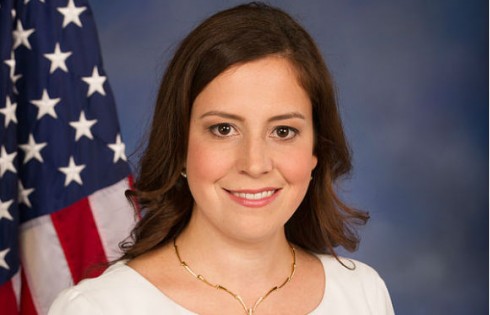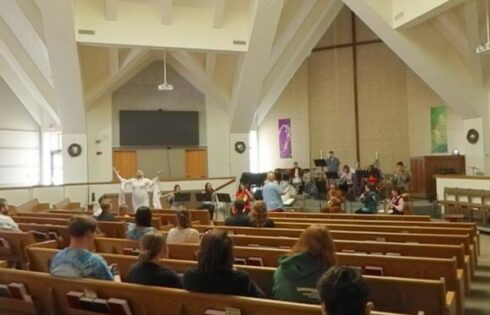
Last week, the New York Times printed a lengthy article that meant to illustrate how the deep cultural divide in America affects how children of different states are educated. Times reporter Dana Goldstein looked at how history textbooks in conservative Texas and liberal California differed, showing how, in some cases, otherwise identical books were altered to emphasize an ideological position.
The books cite the same authors and share the same publisher, notes Goldstein, “and their contents sometimes diverge in ways that reflect the nation’s deepest partisan divides.”
“On these questions and others, classroom materials are not only shaded by politics, but are also helping to shape a generation of future voters,” wrote Goldstein.
Yet in writing for The New York Times, Goldstein shares the same publisher as the ambitious “1619 Project,” a series of articles run by the newspaper’s Sunday magazine that seeks to reframe the way Americans view the historical effects of slavery.
Debuting in August of 2019, the Times set the immodest goal of the project “to reframe the country’s history, understanding 1619 as our true founding, and placing the consequences of slavery and the contributions of black Americans at the very center of the story we tell ourselves about who we are.”
Effectively, the project reverse-engineers American history to ascribe the blame for many modern practices to the horrors of slavery. The first installment of the project manages to find slavery DNA in contemporary concepts such as American capitalism, the lack of universal government health care, automobile traffic patterns, disparities in treating diseases, popular music, the modern criminal justice system, and why Americans eat too much sugar.
But since it was unveiled, the project itself has suffered under a deluge of criticism from historians that claim many of its facts are wrong.
And yet, ironically, the 1619 project is now slated for inclusion in school curriculums across America. Clearly, the Times is eager to criticize ideological bias while remaining oblivious to its own.
In December, five distinguished history professors issued a criticism of the 1619 Project and sent it to the New York Times. In their letter, they explained they were “dismayed at some of the factual errors in the project and the closed process behind it.”
“These errors, which concern major events, cannot be described as interpretation or ‘framing,’” wrote the professors. “They are matters of verifiable fact, which are the foundation of both honest scholarship and honest journalism.”
Primary among the professors’ contentions were the claim that the American Revolution was an attempt to protect the practice of slavery. They note that such a charge is “astounding,” and claim “every statement offered by the project to validate it is false.”
The professors also take particular issue with an essay penned by Princeton Professor Matthew Desmond that claims the foundation of modern capitalism is rooted in slavery. Desmond’s essay relies in part on the work of Cornell researcher Edward Baptist, who has been accused of fabricating both quotes and evidence to support his contention that America’s current economy is still influenced by the exploitation of slaves.
“Those connected with the project have assured the public that its materials were shaped by a panel of historians and have been scrupulously fact-checked,” wrote the professors. “Yet the process remains opaque.”
In the very same issue announcing the 1619 Project, the Times also announced the “The 1619 Project in Schools” initiative being headed up by the Pulitzer Center.
“Resources include a lesson plan that introduces the issue, summaries of the articles, an index of historical terms used, suggested activities that engage students creatively and intellectually and opportunities to connect with New York Times journalists featured in this issue,” the advertisement reads.
Local school districts did not waste any time clamoring for the new progressive reframing of American history.
“We are committed to giving our students a historically-accurate, culturally-relevant, and engaging education, and these resources from the New York Times and the Pulitzer Center are invaluable tools for our classrooms,” said Chicago Public Schools CEO Janice Jackson in a September blog post.
“Thanks to our partners at the Pulitzer Center, every CPS high school will receive 200–400 copies of the New York Times’ The 1619 Project this week as a resource to help reframe the institution of slavery, and how we’re still influenced by it today,” Jackson wrote.
So while one office at the Times is cultivating biased, error-ridden essays intent on furthering a political agenda, another office down the hall is criticizing state educators for crafting their historical narratives in a more honest way.
Perhaps the New York Times should heed the lesson of another colonial figure, Thomas Jefferson, who claimed “the man who never looks into a newspaper is better informed than he who reads them.”
MORE: Cornell scholar cited in NYT’s ‘1619’ series charged with fabricating quotes, evidence
IMAGE: Shutterstock.com
Like The College Fix on Facebook / Follow us on Twitter






Please join the conversation about our stories on Facebook, Twitter, Instagram, Reddit, MeWe, Rumble, Gab, Minds and Gettr.